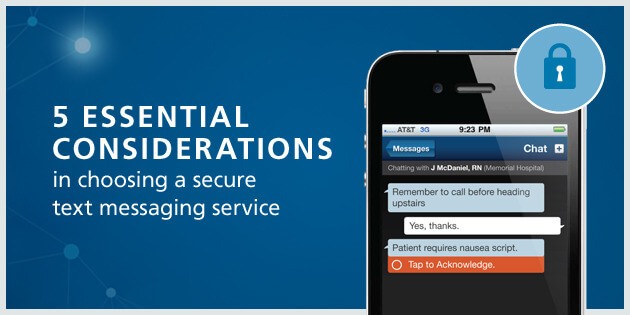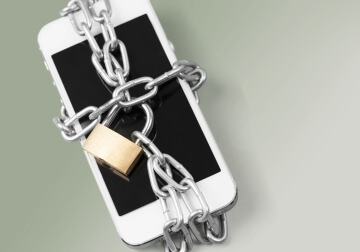
It’s crunch time. With just over two weeks until the Sept 23rd HIPAA Omnibus deadline, as the CIO of healthcare provider facility you’ve come to discover that a number of your physician and nurse providers have been communicating with one another over standard text message, exchanging information in a HIPAA noncompliant manner. However, there’s still time before these events turn into reportable breaches, so you decide to implement a secure text messaging application. What are the essential features you must take into consideration in choosing a vendor?
Any secure text messaging service is better than nothing, but not all services are created equal. A P2P encryption infrastructure ensures that PHI is only being sent directly from user to user, cutting out the middleman vendor server. Using a cloud-based, decrypt-store-re-encrypt service leaves your stored PHI at the mercy of your provider’s security controls.
Just because you use a P2P encryption product doesn’t mean that you can’t store your data. The best secure text messaging services give their users complete control over their data, allowing them to store messages in their data center or cloud. This sort of data can provide all types of benefits to a CIO, from provider benchmarking information to even medical malpractice defense evidence.

These features add two essential benefits: usability and compliance protection. Read receipts ensure that critical information was communicated to the recipient, allowing the sender to take other actions if necessary. Moreover, in the event of a lost phone or other security incidents, the ability to prove that the PHI-containing message was never read by a potential malicious third party is an essential component of a breach analysis.
Speaking of breach investigations, the new breach standard outlined in the HIPAA Omnibus Regulations requires the analyst to prove that a third party did not access PHI. Proving a negative can be almost impossible, especially in the context of a lost phone with locally-stored PHI. However, if the secure texting application can provide access logs to the secured application, an analyst can quickly show that PHI in question was kept safe. This can be all the difference in a multi-million dollar privacy lawsuit.
Finally, a secure text messaging service will only be useful if your users decide to adopt it as a replacement to SMS. Therefore, usability is paramount. A simple interface goes a long way in achieving this, as do intuitive features such as group messaging and file attachment. A valuable service not only keeps your providers happy, but it also helps to get your users to buy in and stop texting PHI.
